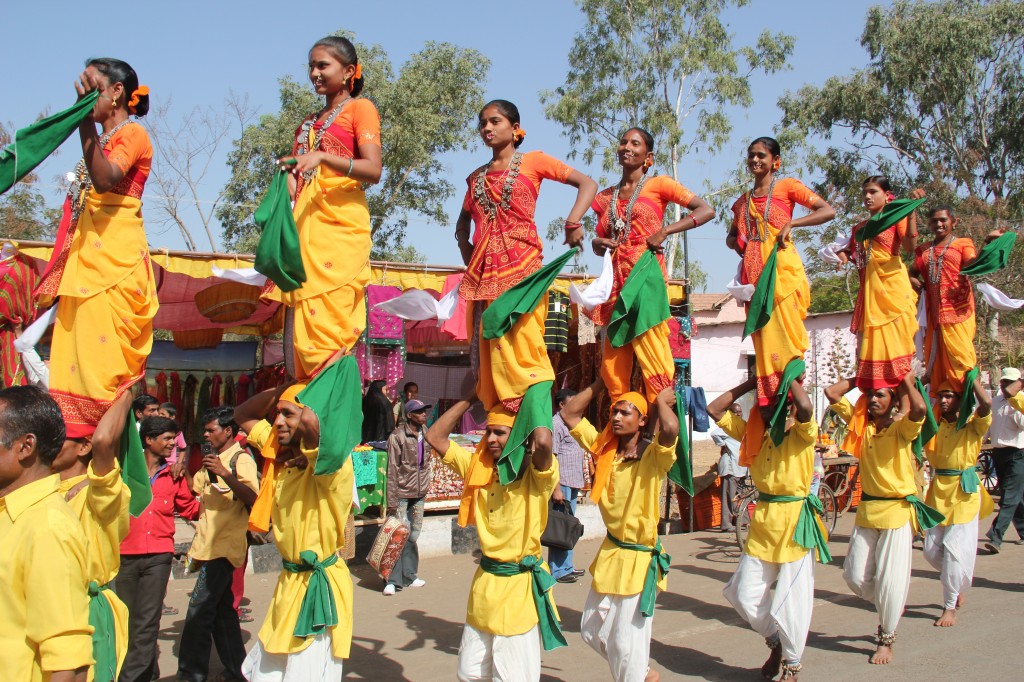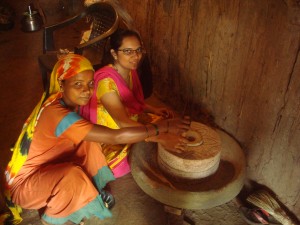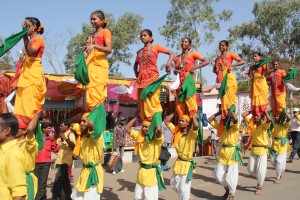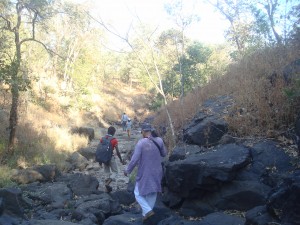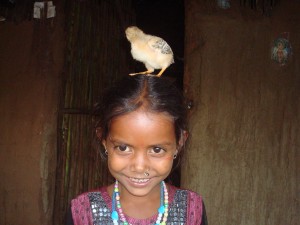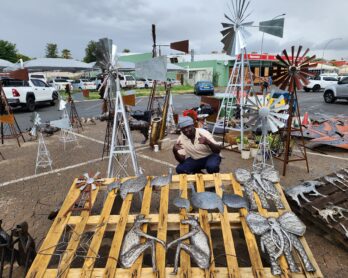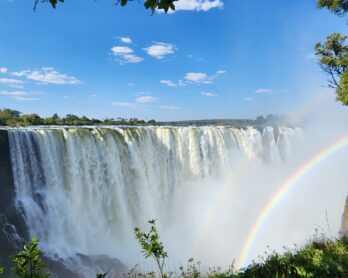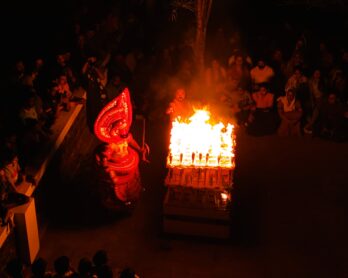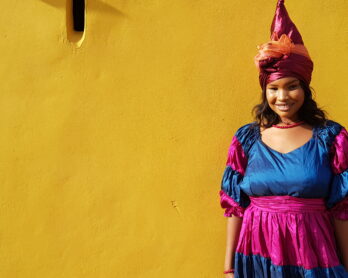Like most treaties, this one too was entered into after the war, bloodshed and loss of imperial face. And of course, there were the many give-and-takes: while the British were given access to the forest and its rich produce, they had to shell out a princely sum in gold and silver to the five kings of Dang. The year was 1842.
Cut to the present. The post-Independent government of India stopped all privy purse payments to erstwhile princely states through a constitutional amendment in1971, though it was the carrot to join the republic in 1947. However, some exceptions were made – depending on the capabilities of the warring and the erring maharajas to be a pain in the federal neck or a drain on the incipient coffers. Probably recognition of the valiant efforts which brought the Empire to the signing board with a bunch of adivasis from Ahwa in the Dang district of Gujarat, the government of India continues to cough up the privy purse – or political pension, today – to the successors of these five kings. 171 years later, the payout – which was a strict state matter – has taken on more well, democratic dimensions and cloaked itself in gaiety and gusto. Welcome to the Dang Durbar!The Darbar held, celebrated, in the salubrious Saputara hills of the Dang district has been a relatively quiet affair considering other rural festivals next door like the Pushkar and Kumbh Mela which are flagged events in the international festival circuit. Coinciding with the colour-water festival of Holi, this year’s edition of Dang Darbar will be from March 23rd to 25th. The proud kings of the five tribes – Daher, Gadhvi, Linga, Pimpri and Vasurna – arrive with large hordes of their members all finely trussed up in eye-catching colourful, traditional attires. In fact, extra care is accorded to grooming and looking good for the event as the three-day festivities also reveal to many their life partner.
Giving merry company to the five tribes, several other ethnic communities from Gujarat like the Bhils, Gamits and Warlis – also turn up in their centuries-old fineries. I have seen members doff a Nike or stretch Levi to get into costume in many tribal festivals across India; here I am told they live in loin clothes and perform in one. I can already see the earnestness and feel the honesty that comes being closest to authentic. This is rural India unfurling itself and revealing many hitherto unseen, hidden hues and experiences, sentiment and aspirations. Besides the cultural and historical inundation, giving the Darbar an added edge is the political angle, which thankfully stays subdued – the disbursement of the pension being undertaken by the district collector. Probably an understandable development considering the disbursement which was once at the core of the Darbar, has in recent years given the baton to the demands of a rising numbers of visitors from all over India and abroad – folk dance, tribal music, ethnic food, jewellery, dresses… a haat that beats to the experiential heart. It is not just about kings queuing up, but a slice proper of Village India. “Organic farming, forest trekking, bird watching, rural sports – are some of the activities we offer which will give you a better understanding of the Dangi culture,” says Chirag Munjani who runs a social enterprise ‘Rural Pleasure’ with the idea to improve rural lives through tourism. “Now, if you want a deeper understanding, we also train you in milking cows, breaking paddy shells, making flour using chakki, dung flooring, bamboo art work, fishing, dancing and cutting firewood.” Chirag is a typical Swades-type story: an educated – an MBA – professional with a multi-national company, possessed by the need to give back whatever good fortune that has come his way, at least part of it, leaves good-paying job and takes up one that pays mostly in gratitude and gratification. Chirag plays it down. “I am only following my heart,” he says. And then there are the bonuses as well: “Gujarat is a great place and rural Gujarat, just delightful. It has shown me wonderful places, introduced me to exotic lifestyles, some very unforgettable people and a rich and unexplored cultural landscape.” Rural Pleasure organises package tours to the Dang Darbar. But this is just the beginning. ‘A self-sustaining livelihood model revolving around tourism in 100 villages by 2035’ is what Rural Pleasure has set out to achieve. A tall task? Might be, but Chirag is well on his way. Having already started with the Subir village in Dang district, he is in talks with representatives of the nearby Chinchli and Dhavlidhod villages. The response has been encouraging considering half of what the commercial endeavours make is ploughed back into the villages itself for improving infrastructure and quality of life. “The scaling up will begin in 2014 with the Gir and Kutch regions and plans are to add at least four to five villages each year across each state.” In addition to the locals, the venture is also supported by the Tourism Corporation of Gujarat Ltd, who, Chirag says are “happy that somebody has taken up batting for sustainable tourism in the state”.This commendation from a government body goes a long way considering that the state is the backyard of industry and benchmark of growth in the country; sustainable practices and inclusion might not strike the right notes on the fast track of development. While the tourism body rightfully bask in the popularity of festivals like Navratri, Rann or the International Kite Flying Festival, smaller ones like the Dang Darbar are yet to earn their place in the state tourism website. Then, it shouldn’t be long either.
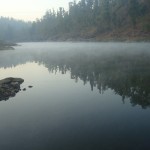 In India we have festivals for every reason and changing season. Most of it revolves around gods, goddesses and saints and some even demons. We light up warmth-giving diyas as a harbinger to winter and splash water and drink bhang to fortify ourselves against the onslaught of summer. A good harvest sees us break a bedecked leg, as does a birth in the family. Erstwhile kings, including the mythical ones, are fondly remembered over gluttonous feasts, one celebrates the wife’s undying love and faithfulness while in another brothers swears everlasting protection for their sisters.
In India we have festivals for every reason and changing season. Most of it revolves around gods, goddesses and saints and some even demons. We light up warmth-giving diyas as a harbinger to winter and splash water and drink bhang to fortify ourselves against the onslaught of summer. A good harvest sees us break a bedecked leg, as does a birth in the family. Erstwhile kings, including the mythical ones, are fondly remembered over gluttonous feasts, one celebrates the wife’s undying love and faithfulness while in another brothers swears everlasting protection for their sisters.
The Dang Darbar is the only one which grew around a princely pension.
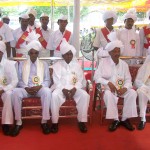 Those interested in going for the Dang Darbar – the last of the merry rural fairs before summer sets up a blazing shop – should get in touch with Chirag Munjani over his organisation website RuralPleasure.com or call him – 9825109670 to make reservations.
Those interested in going for the Dang Darbar – the last of the merry rural fairs before summer sets up a blazing shop – should get in touch with Chirag Munjani over his organisation website RuralPleasure.com or call him – 9825109670 to make reservations.


